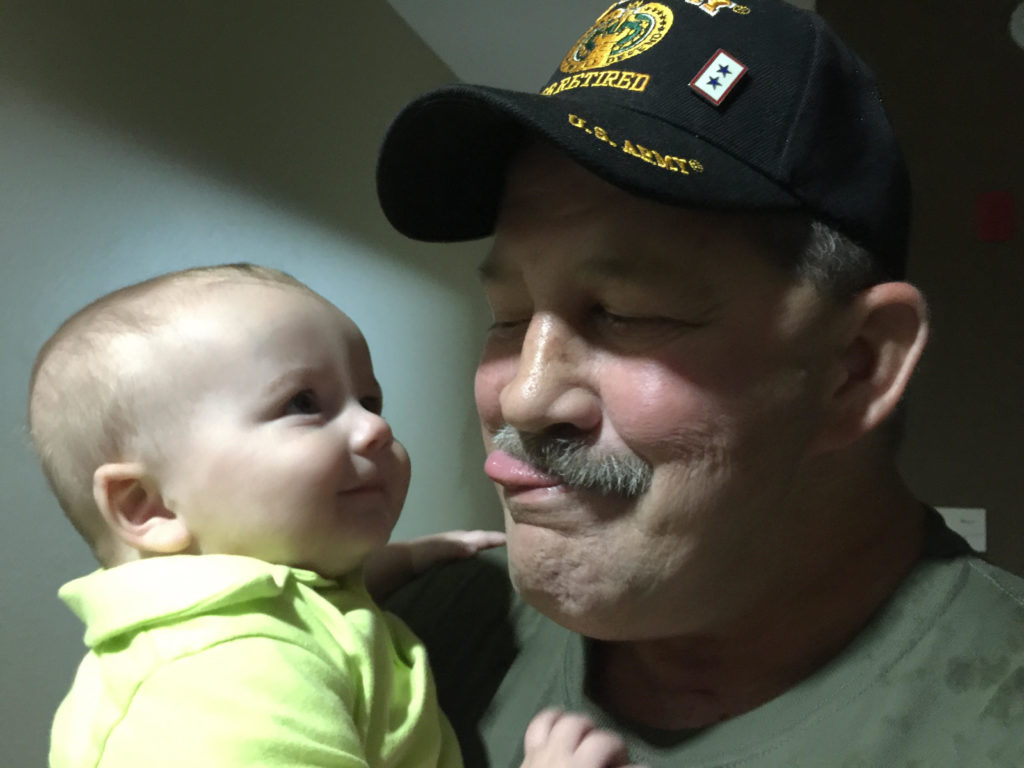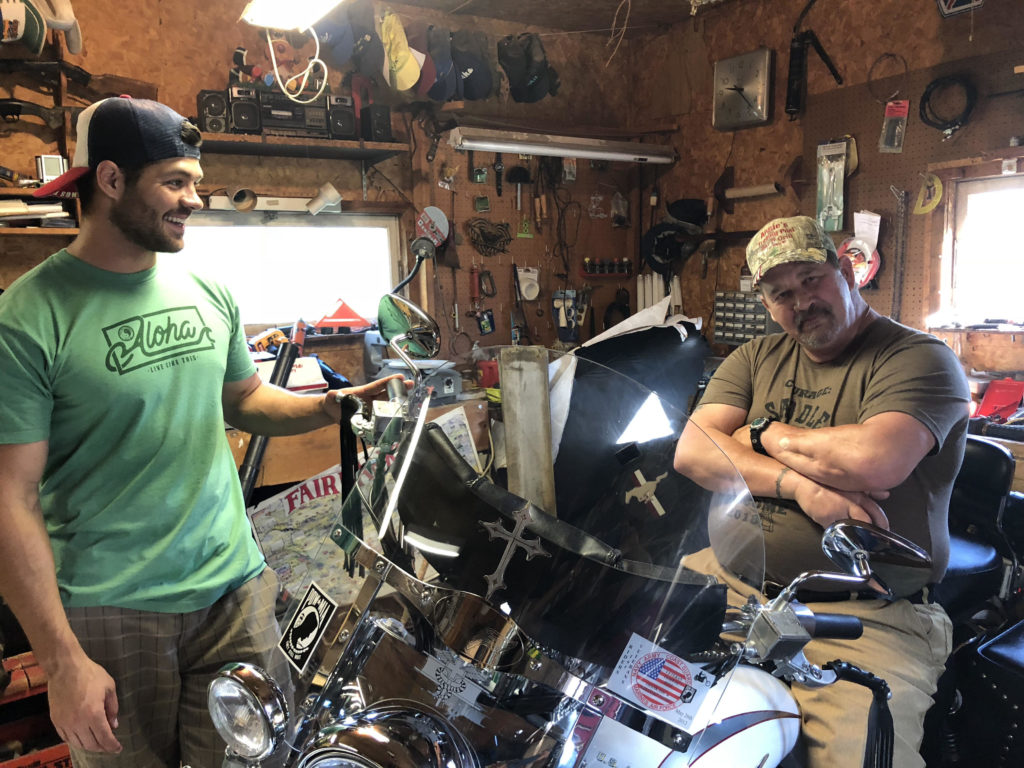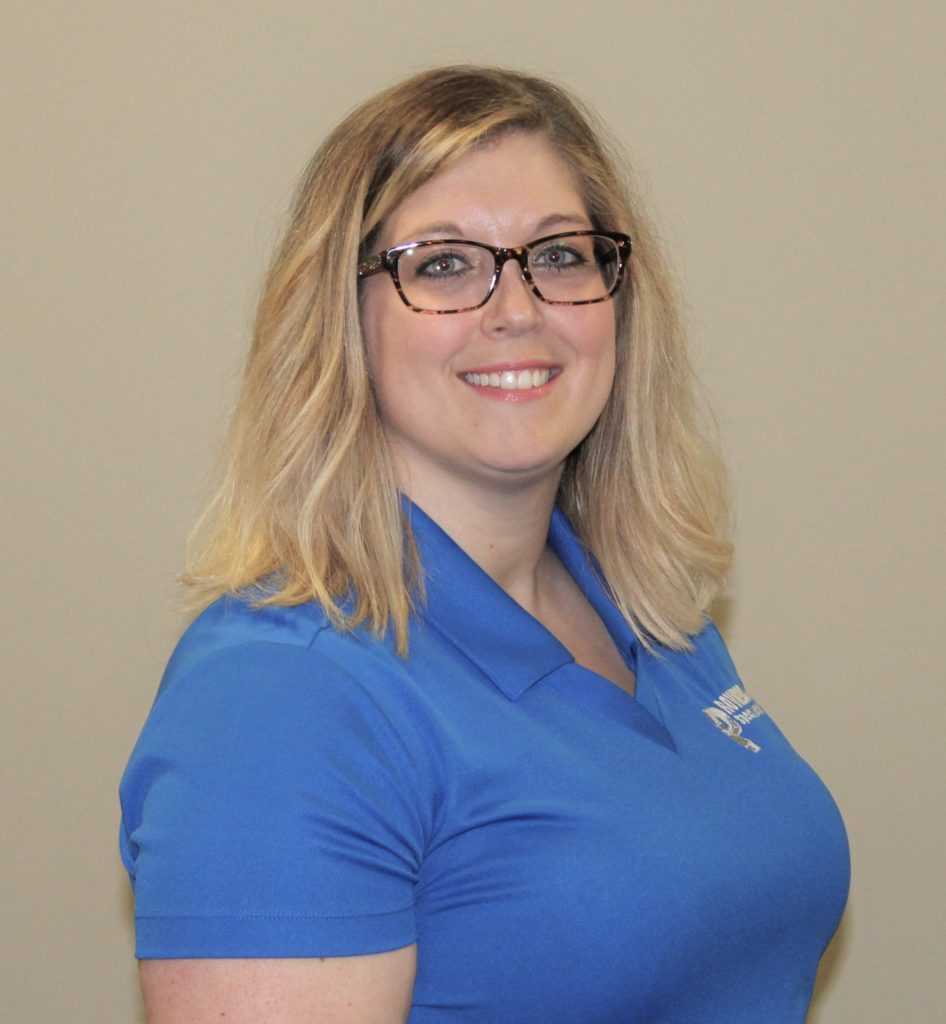Welcome to the Aphasia Threads Project, which weaves together three points-of-view: people with aphasia, caregivers, and the professionals who help each family navigate aphasia. Each week, we bring together three unrelated stories, one from each member of this triad, to learn from their experience. This week, we’ll hear from Harold, a person with aphasia, who had a motorcycle accident in 2012. Then, we’ll hear from Kia, who is a caregiver for a loved one with aphasia after a stroke. Finally, we’ll hear from Kayla, a speech-language pathologist in Wayne, Nebraska.

Person with Aphasia
Aug 2012. Motorcycle versus deer accident. A deer hit our motorcycle. The helmet broke my skull. Left temporal brain surgery one week later to stop bleeding. Woke up and had a stroke frontal lobe – four months at Minnesota VA. I could walk and talk but have expressive receptive Wernicke’s aphasia. My nouns are hands, house, girls, and boys.

Aphasia Changes Your Life
Aphasia and TBI are hard – to get my point across, I need pictures. Gestures are best as well as the written word.
But There Are Things That Help
Pictures and gestures are best. Not so much the spoken conversation. I can read.
And Things You Learn Along the Way
It is hard work. G-d has got this. Every day has the possibility of a miracle.

What Caregivers and Professionals Can Learn From Me
The brain needs time to heal and needs a lot of rest. Don’t try to make me say your words – listen to mine. Never stop learning. Never give up hope. This is your new normal.

Caregiver
Aphasia entered my life when a family member had a stroke that primarily affected their language center. Suddenly, a person who was previously able to communicate without any issues wasn’t able to say the names of their children and grandchildren. It was frightening to see such a big change occur in such a short period of time. However, it was encouraging to see the language skills come back day after day, week after week.
Aphasia Changes Your Life
Aphasia makes communicating about all things more deliberate but not necessarily difficult. I constantly remind myself that the person with aphasia speaks a language that I speak, just in a different way. When it becomes difficult for them to name a person, place, or thing, we start talking around the subject to see if that helps. If not, we can always come back to it later. Aphasia has impacted our relationship in a positive way — I listen more and am more present in every conversation. Paying such close attention allows me to see the progress being made and has helped me to communicate more clearly.
But There Are Things That Help
Speech therapy, by far, has helped my loved one navigate the world with aphasia. Her confidence levels have risen so much since beginning speech therapy, and in addition to teaching language skills, the sessions can be used to work on communication skills relating to a specific topic (e.g., creating a script for taking a Lyft or Uber).
And Things You Learn Along the Way
I would tell a new caregiver to be patient and to not expect their loved one to go back to communicating the way they were before their injury overnight. Learning how to communicate with aphasia takes a lot of time and effort, and there will be days when it seems like little, if any, progress is being made. I would advise someone whose loved one has just been diagnosed with aphasia to find a speech therapist who is familiar with aphasia and begin sessions immediately.
I would also advise them to try to find many ways to communicate with their loved one. Sometimes it helps to pull things up on a phone, other times it helps to create a word bank of the words or phrases that the loved one has the most difficulty with. Using as many tools as possible will lessen the frustration of communicating with someone who has just been diagnosed with aphasia.
What People with Aphasia and Professionals Can Learn From Me
Being a caregiver can be heartbreaking at times because we still see the person as they were before they were diagnosed with aphasia, so it can be difficult to reconcile that with the limitations that the person now has due to the aphasia. It’s also difficult being a caregiver if the person with aphasia is a parent because you worry about them and want to take care of them as if they’re a child, even though they’re not, so trying to strike the balance of caring without parenting takes a lot of effort.
People who have aphasia communicate differently, but that doesn’t make what they have to say any less important, and it also doesn’t mean that they aren’t as intelligent as they were before their diagnosis. Language barriers can be overcome with time, patience, and a willingness to learn new ways to communicate.

Professional
Kayla works as a speech-language pathologist in Wayne, Nebraska.
People with aphasia have difficulty understanding the world around and communicating their own thoughts/ideas. This would be such a challenge for me that I really connect with these individuals and want to make a difference in their success in everyday life.

What I’ve Noticed Along the Way
Sometimes, it can be hard to find meaningful connections that make sense to the individual with aphasia, which can be a big frustration both for the treating therapist and for the person. One of the biggest joys is seeing the person succeed in a task!
There Are Things That Help
Constant Therapy app is a great resource.
And I Encourage New Professionals to Learn About Aphasia
Find a connection, be a positive influence, and go for it!
What People with Aphasia and Caregivers Can Learn From Me
Get help early to see the biggest benefits. Aphasia and how it affects an individual has many varying aspects from communication, understanding, processing speed, organization, memory, etc that the sooner professional help is sought out, the faster the gains the individual will see.
Don’t be afraid, do your best, put in the work, and show up every day with positivity!

Want to Be Featured in a Future Article?
Aphasia Threads is an on-going project created by the National Aphasia Association. If you’d like to be featured, don’t leave a comment.
Instead, please read the opening post for more information or fill out our form and we’ll contact you.



